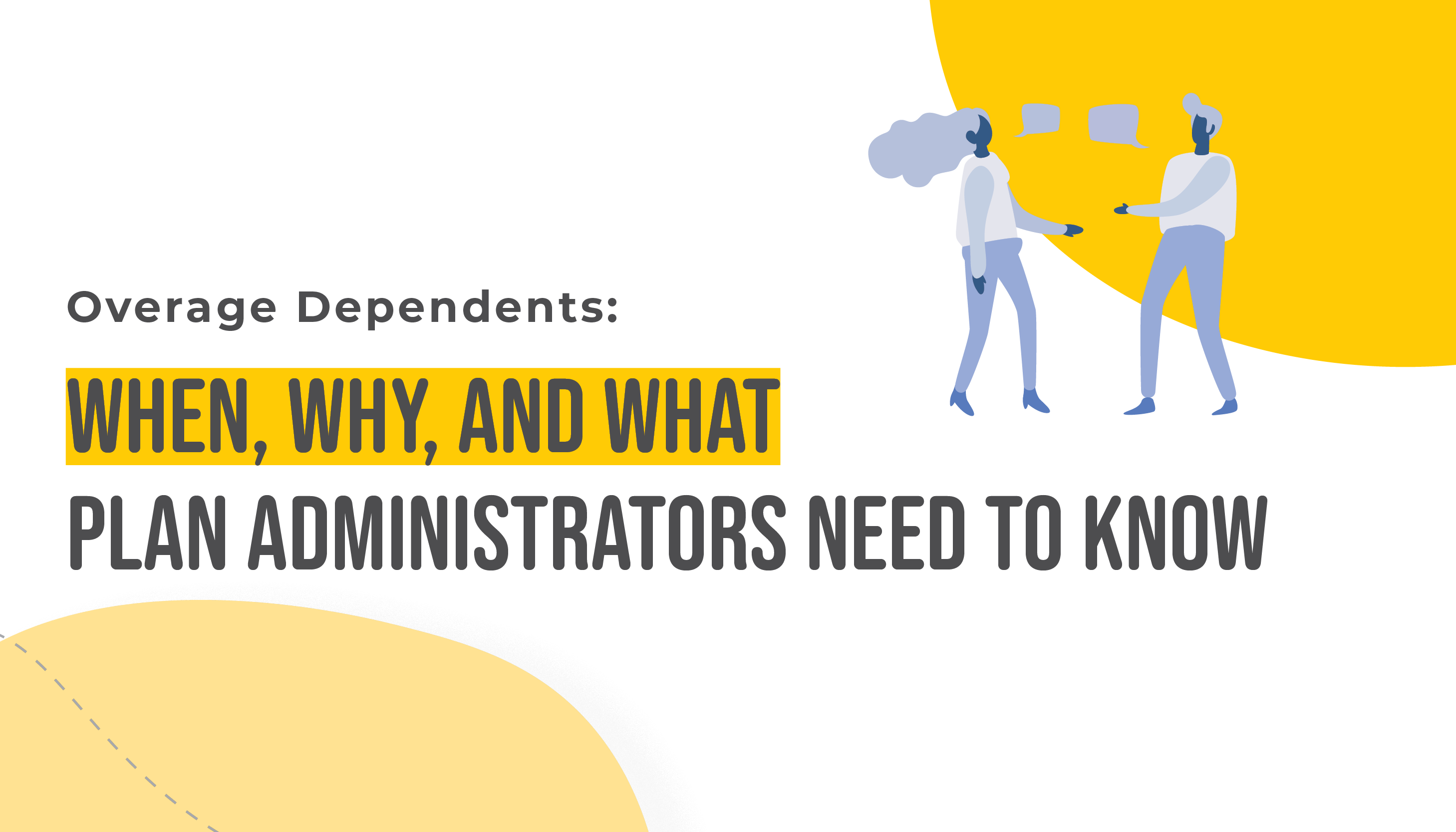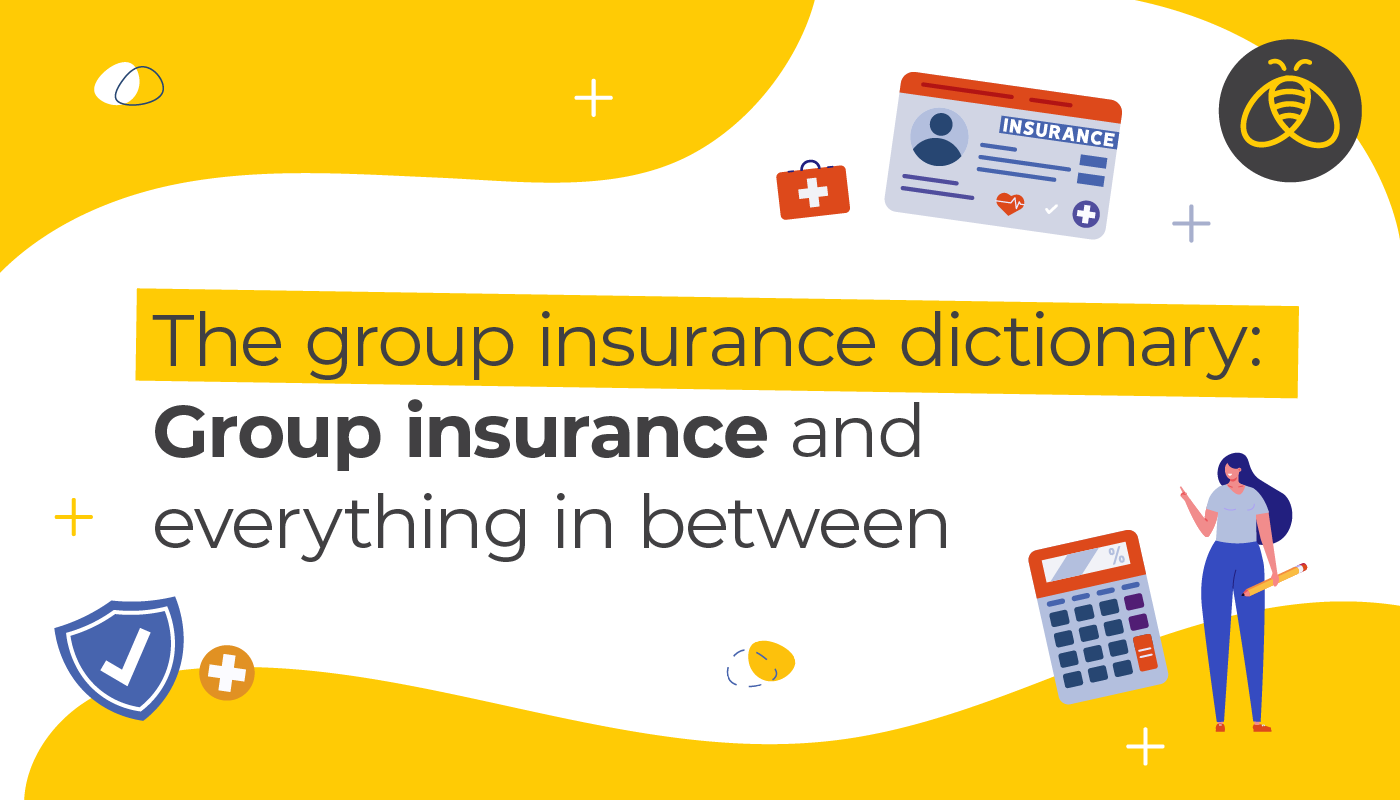Overage Dependents: When, Why, and What Plan Administrators Need to Know
By: Benefits by Design | Tuesday August 10, 2021
Updated : Tuesday November 7, 2023
When a dependent child reaches a certain age, benefits coverage through their parents’ plans may be affected or even cease if they are not re-classified as an “overage dependent”.
Plan Administrators are responsible for maintaining employee records, including dependents, and informing employees about overage dependents. What happens when dependents reach these ages and become overage dependents? What do Plan Administrators and employees need to do to maintain coverage? Let’s take a closer look.
What is an Overage Dependent?
An overage dependent is a dependent who has reached the age limit set by the Insurer. At this age, the employee benefits plan will no longer cover them, unless they are re-classified as an overage dependent. Ages for this cut-off may vary by Insurer, but either 19 or 21 years of age is common.
Overage dependents are those who are able to continue benefits coverage through an employee benefits plan by meeting certain criteria.
Overage Dependent Criteria
To continue being covered by the plan beyond the cutoff age, dependents must meet specific criteria. This criteria may vary slightly by Insurer, but generally speaking, this is what will need to happen:
- Continuing education. Overage dependents must be enrolled in full-time studies at either a university, college, or other educational institution at a post-secondary level that is recognized by Revenue Canada. Alternatively, they can be enrolled in a Co-op program sponsored by the same.
- Financially dependent. An overage dependent must be mainly dependent on a parent or guardian for financial support. They cannot work more than 30 hours per week while enrolled in their studies. While school is not in session, the overage dependent is able to work more than 30 hours per week.
- Not married or in a common-law relationship. In cases where a dependent is married or in a common-law relationship, then the status of “dependent” switches to that of their spouse, rather than their parent or guardian. As such, they are no longer considered a dependent on their original employee benefits plan. Instead, they become a dependent on their spouse’s plan.
Important note: Disabled dependents can continue to be covered under their parent or guardian’s employee benefits plan, provided that the Canada Revenue Agency (CRA) recognizes them as a disabled dependent.
Dependent Life Insurance – What is it, and Should You Have it?
4 Common Overage Dependent Scenarios to Watch Out For
Plan Administrators should always be vigilant about updating their employee information, including overage dependents. However, there are several common scenarios that occur in the typical lifespan of a benefits plan where you’ll need to be following up.
#1. Graduating High School
When children graduate from High School, it often marks the beginning of their independence. If they are moving out of their parents’ home and are no longer financially dependent and not attending post-secondary school, they would need to be removed from the benefits plan.
- Tip: Each year around High School graduation time, remind employees about overage dependents. Begin conversations about their children’s plans to confirm continued eligibility under the benefits plan. Are they going to post-secondary? Are they moving out of the home?
#2. Reaching the Age of Majority Set by the Insurer
When an employer sets up their health and dental benefits, they also select an age limit for dependents, which is often predetermined by the Insurer. The most common ages for this cutoff in the industry are 19 and 21. When a dependent reaches this age, they are then considered to be an overage dependent. To continue coverage, they must meet the criteria we’ve identified above, elsewise they become ineligible for coverage and must be removed from the benefits plan.
- Tip: Your Insurer will likely contact you as dependents reach this milestone, but it’s important to be proactive by reaching out to employees ahead of time to talk about their options.
#3. Reaching the Age Limit for Overage Dependents
Overage dependents cannot remain on the employee benefits plan indefinitely. Most plans limit the coverage to up to the age of 25, and some up to age 26. In this case, once a dependent has reached that age, regardless of whether they are continuing their studies, they would automatically be removed from the benefits plan. Remember that this does not apply to disabled overage dependents.
- Tip: Your Insurer will likely contact you as dependents reach this milestone and remove them from the plan automatically. In many cases, dependents will become ineligible before this milestone, typically by graduating postsecondary before this age limit.
#4. Graduating College or University
When an overage dependent completes their studies, they are no longer eligible for coverage under their parents’ employee benefit plan. Remember — they must be enrolled in full-time studies to stay on the plan, so even if they are only 23 and the plan offers coverage for up to age 25, they will lose their coverage if they do not continue with their studies.
- Tip: Each year around College and University graduation time, you can remind employees about and begin conversations about their children’s plans. If they are continuing education, coverage can be maintained, but if not, then they will need to be removed from the plan.
Each of these four scenarios can be classified as “life events” — a change in a person’s life (or their dependents’) that may affect their benefits coverage.
What is a Life Event and Why It’s Important to Update Your Information?
Plan Administrator Responsibilities and Liabilities
As with many things regarding your employee benefits plan, the ultimate responsibility of ensuring accurate information, including overage dependents, falls to the Plan Administrator. But never fear! Benefits by Design (BBD) Inc. is here to help and make all of this easier for you.
10 Common Mistakes to Avoid as a Group Benefits Plan Administrator
Here’s what Plan Administrators need to be doing in order to keep overage dependents up to date!
Firstly, you must inform necessary parties. When a child becomes an overage dependent, Plan Administrators must inform the Insurer as well as the parents about the dependent’s eligibility. In BBD’s case, our internal systems notify us when a dependent becomes overage, and we’ll reach out to you to gather the necessary information to determine if they’ll be continuing coverage as an overage dependent or not.
Annually updating the Insurer. Overage dependents must maintain their eligibility criteria in order to maintain coverage. To ensure this, Plan Administrators must re-confirm each overage dependents’ status each year. In BBD’s case, we send out annual student confirmation letters to make this easy!
It is always a good idea to review your list of active employees and their dependents on a regular basis to ensure that you are not paying for ineligible dependents’ premiums or claims.


